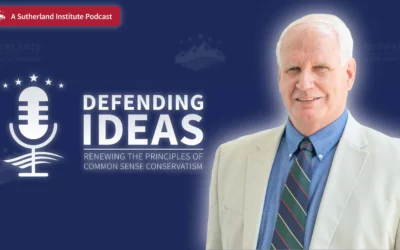
Written by William C. Duncan
August 3, 2023

Congress is considering the reauthorization of the Pandemic and All-Hazards Preparedness and Response Act. This bill is intended to provide guidelines for responding in the case of a health emergency like COVID. Among other new provisions Congress will be deciding is a requirement that “public health departments … take into account input from faith groups.” Why?
One possible reason is that some of the most prominent conflicts created by the COVID pandemic response involved worship. Indeed, the U.S. Supreme Court was asked to weigh in on a number of disputes caused by state and local government restrictions that severely limited or even prohibited public worship. Eventually, the court clarified that the Constitution did not allow religious services to be subject to more exacting limitations and restrictions than similar secular activities.
Although it certainly makes sense that religious organizations should be allowed a say in regulations that may impact them, it is probably more surprising that this hasn’t happened before now. Perhaps that reflects a perspective that religious views don’t belong in the public square.
Michael McConnell, Stanford law professor and former federal appeals judge, recently addressed this perspective in a speech in New York City. McConnell was awarded the 2023 Canterbury Medal in May by the Becket Fund for Religious Liberty in honor of his remarkable contribution to the scholarship and defense of religious freedom.
In his speech, McConnell related a story from Friedrich Nietzsche about a madman who carries the message “God is dead!” through the world. McConnell continues:
But there is one exception. The work begins with an encounter between Zarathustra and a holy man living alone in the forest. Zarathustra asks the hermit what he does in the forest, and the hermit replies: “I make hymns and sing them; and in making hymns I laugh and weep and mumble: thus do I praise God. With singing, weeping, laughing, and mumbling do I praise the God who is my God.”
The hermit then asks Zarathustra what he had brought as a “gift.” Zarathustra, surprisingly, does not take up this invitation to tell the hermit the terrible truth of the death of God. Instead he says, evasively, “What should I have to give thee! Let me rather hurry hence lest I take aught away from thee!” And Zarathustra leaves the old man to worship in peace.
McConnell calls this “the story of religious faith in the postmodern world.” He continues:
Religious freedom is to be protected, strongly protected – so long as it is irrelevant to the life of the wider community. We can worship whatever crazy way we want to, in private. It neither picks my pocket nor breaks my leg, as Jefferson would say. But allow religion to affect the law pertaining to, say, abortion or marriage; or allow religion to affect the way we educate our children in our communities’ schools; even allow religion to affect the way we celebrate holidays in public, and there is trouble.
The speech effectively describes how we have gotten to this point that he calls “selective multiculturalism,” which “combines extraordinary toleration for conduct and expression that would once have been condemned, with extraordinary intolerance toward conduct and expression that once held cultural sway.”
So, what does this suggest for people of faith who want to be able to speak in the public square on a level with others, about things that matter to them?
McConnell gives very helpful advice, which should be read in full. His second suggestion is, “Don’t stay in the forest.” He encourages believers to “come out from the chapel from time to time and venture into the world. You have every bit as much right to be who you are, believe what you believe, and act in accordance with conscience as anyone else in this free, diverse, and liberal republic.”
That is great advice.
In a small way, government officials can be more open to hearing the voices of people of faith as they do those of others, as in the case of the pending pandemic bill. McConnell’s counsel is just as important, though. People of faith must not neglect opportunities like the one presented by the pandemic bill but should also make other opportunities to speak out where appropriate – and use those opportunities well.

Insights: analysis, research, and informed commentary from Sutherland experts. For elected officials and public policy professionals.

- Congress is considering legislation to give religious groups a voice in the public health response to emergencies.
- Stanford professor and religious freedom scholar Michael McConnell has critiqued a postmodern tendency to tolerate religious belief only when it is kept strictly private.
- People of faith should not accept being relegated to the private sphere but should seek to speak out in appropriate ways about matters that concern the society of which they are an important part.
Read More
Protecting property rights against government overreach
While governments can continue to regulate land use, these regulations and fees must be justified by a government interest and proportional to the effect of the development’s impact on that interest.
Do we need to care about the Utah State Board of Education?
For any Utah voters who also feel like K-12 public education is headed in the wrong direction, learning about the candidates running for a seat on the Utah State Board of Education (USBE) is a wise choice this election season.
Defending education choice the right way
Education choice has exploded in popularity across the nation in recent years. So why does it remain a contentious point of debate in some parts of the country?


